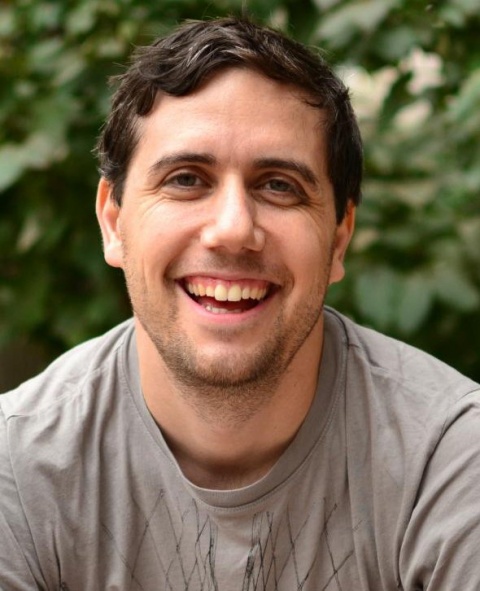Columbia College | Columbia University in the City of New York
Ady Barkan ’06, Activist Who Fought To Improve Healthcare System

Barkan was diagnosed with amyotrophic lateral sclerosis, the neurodegenerative disorder often referred to as Lou Gehrig’s disease, in 2016, just four months after the birth of his son, Carl. As he confronted the onset of paralysis, loss of speech and ultimately his own mortality, he dedicated his life to changing health care in America.
By melding his personal story with passionate calls to action, Barkan’s influence grew as his health deteriorated. He testified before Congress, met with presidential candidates and spoke at the Democratic National Convention in 2020.
“That’s the paradox of my situation,” Barkan told The New York Times in 2019. “As my voice has gotten weaker, more people have heard my message. As I lost the ability to walk, more people have followed in my footsteps.”
Born Ohad Barkan in Boston on December 18, 1983, to Israeli immigrant parents who were university professors, Barkan grew up in Cambridge, Mass., and completed high school in Claremont, Calif. He became involved in politics as a teenager by campaigning for Rep. Adam B. Schiff (D-Calif.) in 2000 and said he initially identified as a centrist Democrat but became disenchanted with America’s political system after the 2003 invasion of Iraq.
Barkan majored in economics, graduated from Yale Law in 2010 and clerked for a federal judge in New York but decided to become a full-time activist after being drawn to the Occupy Wall Street protests that began in Lower Manhattan in 2011. He worked to improve housing for low-income Americans and to strengthen protections for immigrants, among other progressive causes, including reforming the country’s banking system. In a 2016 feature article, Politico called him the “the most influential activist in America.” Two years later he co-founded Be a Hero, which has as its goal “a more just health care system in the United States.”
“The ugly truth is this: Health care is not treated as a human right in the United States of America. This fact is outrageous,” Barkan testified in a congressional hearing in April 2018. After describing how he and his wife had been fighting with his health insurer over his medical bills, he added, “We have so little time left together, and yet our system forces us to waste it dealing with bills and bureaucracy.”
Barkan held one-on-one conversations with candidates seeking the Democratic nomination in 2020, including Sens. Bernie Sanders (Vt.), Kamala D. Harris (Calif.), Cory Booker (N.J.) and Elizabeth Warren (Mass.). He supported Harris and then Sanders but endorsed Joseph R. Biden once he secured the nomination, saying the party needed to align to defeat the incumbent President, Donald Trump.
Once Biden was elected, Barkan urged the administration to follow through on campaign pledges to improve health care, including home support. “Home care is keeping me alive. I don’t think I could tolerate my paralysis if I were isolated in a nursing home instead of surrounded by the love of my children and wife every day,” Barkan told a reporter in September 2021, typing out the message with eye movements. “But millions of disabled people and their families aren’t as lucky as me.”
Upon Barkan’s death, Sanders described him as an inspiration, saying there are “very few people in this country who have done more to make health care a human right.” Warren noted that she had watched Barkan “pick a lot of really good fights” over the years and added, “Thanks to his persistence, he hasn’t just been in the fights, he’s been leading these fights, and helping win them.”
Barkan, who was the author of a 2019 memoir, Eyes to the Wind: A Memoir of Love and Death, Hope and Resistance, and the subject of a 2021 documentary, Not Going Quietly, is survived by his wife of 18 years, Rachael Scarborough King ’06, whom he met at Columbia; son, Carl; daughter, Willow; mother, Diana Kormos Buchwald (Jed); father, Elazar Barkan (Pamela Smith), a professor at SIPA; and brother, Muki.
— Alex Sachare ’71
Issue Contents
Published three times a year by Columbia College for alumni, students, faculty, parents and friends.
Columbia Alumni Center
622 W. 113th St., MC 4530, 4th Fl.
New York, NY 10025
212-851-7852
cct@columbia.edu
Columbia Alumni Center
622 W. 113th St., MC 4530, 4th Fl.
New York, NY 10025
212-851-7488
ccalumni@columbia.edu

